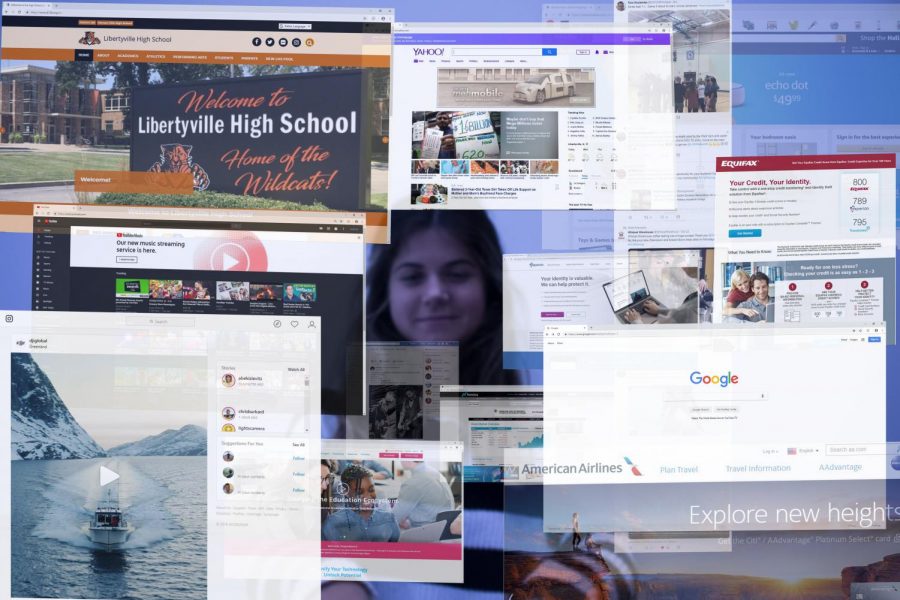As technology has become more and more ingrained within modern society, cybersecurity has become significantly important. Major credit report companies such as Equifax and Experian have experienced severe data breaches as well as platforms like as Instagram, so how does LHS keep student’s information secure?
Meeting People Online
At this point in our lives, we’ve probably heard about the “Libertyville Bubble” more times than we care to count. However, no matter how much you’re told that you live in a bubble, it doesn’t become real until you have a personal connection with someone who lives outside of it.
Far outside.
Over the last few years, the only cancelled school days at LHS were due to cold and snow. In some parts of our country, we may have days where storms or wind prevent transportation to school. In Damascus, Syria, my friend Jack’s classes are cancelled when bombs fall in the streets and it’s too dangerous to leave his home.
Though no two lives are the same by any means, the lives of those who directly surround us are fairly similar to our own. The further away you go, the more circumstances are likely to change. My Canadian friend Liv skis competitively almost every weekend, while Ally, who lives in Singapore, has never seen snow. I go to public high school, while Hannah in Kentucky is homeschooled and British-Zimbabwean Nia goes to a massive private academy.
At the beginning of the summer I met one friend, Vic, in downtown Libertyville. For a year we’d talked about hockey and movies and music, lamenting the fact that we lived on opposite sides of Lake Michigan. She’s no more or less of a “real” friend because we spent those few hours together, but it meant a lot to me nevertheless.
What makes a friend? Most people would say common interests or similarities, which are the most obvious reasons a friendship would form. What might be often overlooked is the element of proximity. In the past, who you were friends with depended entirely on who you lived closest to. As transportation developed from horses and carriages all the way to planes, it became easier and easier for people to stay in touch with friends and family who were further and further away.
With the advent of the internet, the necessity of proximity fades away. Every year, there’s a new social media platform, a new network to stay connected. It doesn’t matter where you live, as long as you have an internet connection. Truly, it barely even matters what language you speak — translators can facilitate any discussion.
Without proximity as a defining factor, friendships are built mainly on the people. Friendships of mere convenience are obsolete because these new relationships require active effort to maintain — thus, they will become stronger over time.
So why should my friends on the other side of the globe be considered any less valid than those I make in class? Why are they called “internet friends,” as if they don’t deserve the distinction of being real friends?
Of course, safety is a major consideration when putting yourself out there online, and safety should be at the forefront of any decision made regarding an online presence. There are ways to spot danger, and I am by no means arguing that these things should take a backseat in the name of friendship. However, if you keep yourself secure and safe, as the previous pages’ article explains, there’s no reason to shun potential connections.
Some people I talk to lead similar lives to mine, but some have experiences so vastly different from my own that I would never have understood — if it weren’t for the connections I’ve made. Knowing these people has made me a more conscientious world citizen and a more compassionate person.
And no, I’ve never met my Syrian friend in real life. But we often talk about what we’ll do when we’re grown up, when the war is over and he can leave his country safely, when we can meet up in some city and grab a drink and continue the same conversations we’ve been having all these years.

